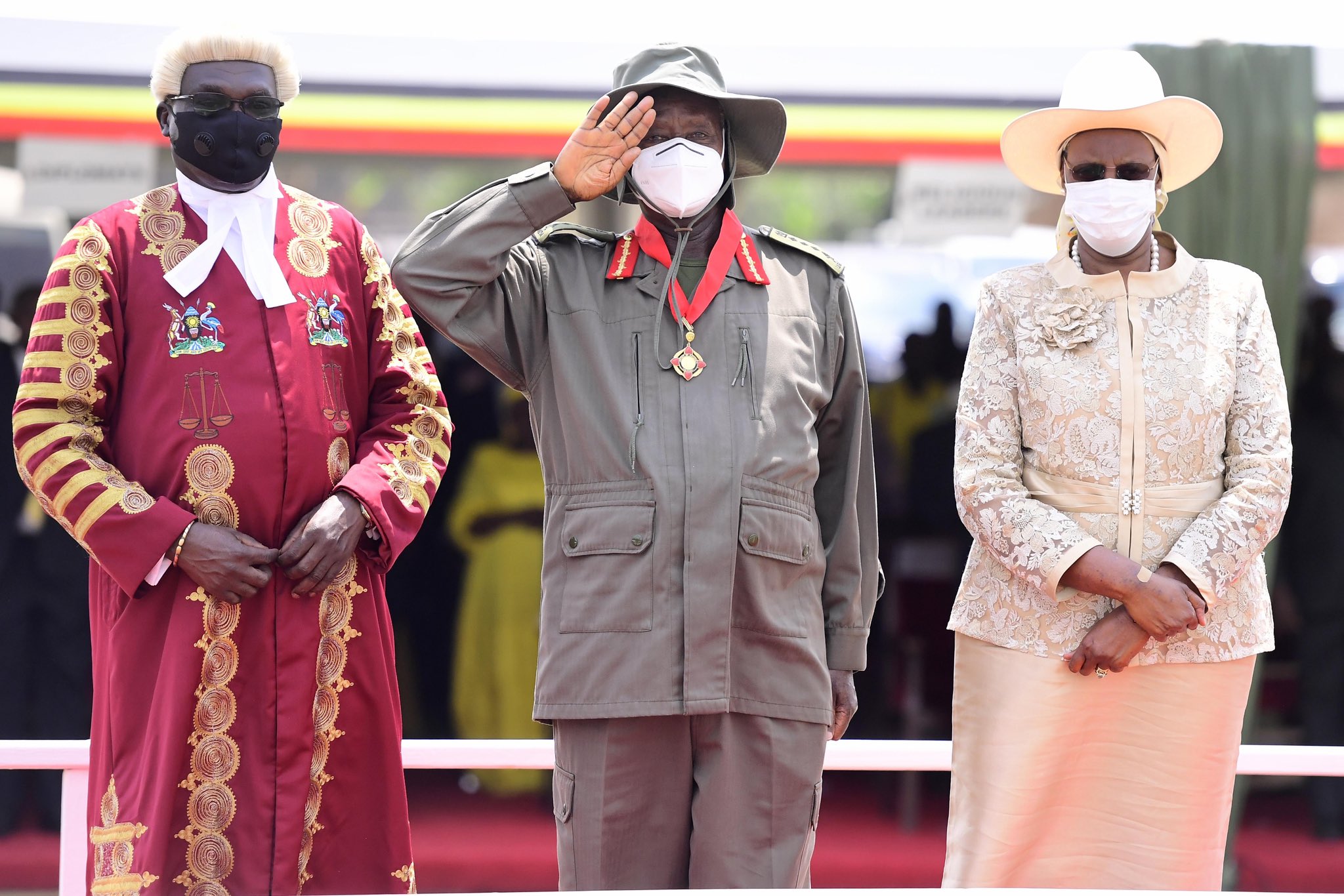President Yoweri Museveni has been awarded the Katonga medal, the most prestigious decoration in Uganda.
Maj Gen George Igumba, the chancery to the Presidential awards committee, explains that the award is named after the battle that signified the final victory of the National Resistance Army’s liberation war.
The award was given by the President to recognize his immense contribution to Uganda’s liberation struggles.
The award was also awarded to former Tanzanian President Mwalimu Julius Nyerere in 2007 in recognition of his assistance in liberating Africa from colonialism and Uganda, from Idi Amin’s rule.
According to its citation, the award recognises extraordinary instances of heroism that involve voluntary acceptance of additional danger beyond the call of duty and risk of life.
Igumba says that since 1970, President Museveni formed and led the Front for National Salvation (FRONASA) in the anti-Amin struggle which rose to about 10,000 combatants that crossed River Kagera and defeated the Uganda army.
Igumba says President Museveni has over time struggled against the tyranny of the country until he formed and led the Uganda Patriotic Movement (UPM) that sensitized Ugandans on clean leadership, peace and unity among other values.
He was speaking during celebrations to mark the 42nd Tarehe Sita day, in commemoration of the day UPDF attacked Kabamba barracks in 1981.
He adds that in the 1980s he formed and led the National Resistance Movement/Army in the war of resistance and national liberation from 1981-86 that has led to the current social-economic transformation.
Igumba says raising the army from 100,000 men in the 1980s Museveni has become a commander of the formidable UPDF that has professionalized and modernized from an ill-armed, ill-trained guerilla army in 1986 to be able to undertake all defence missions and contribute adequately to its regional and international obligations for peace and security.





